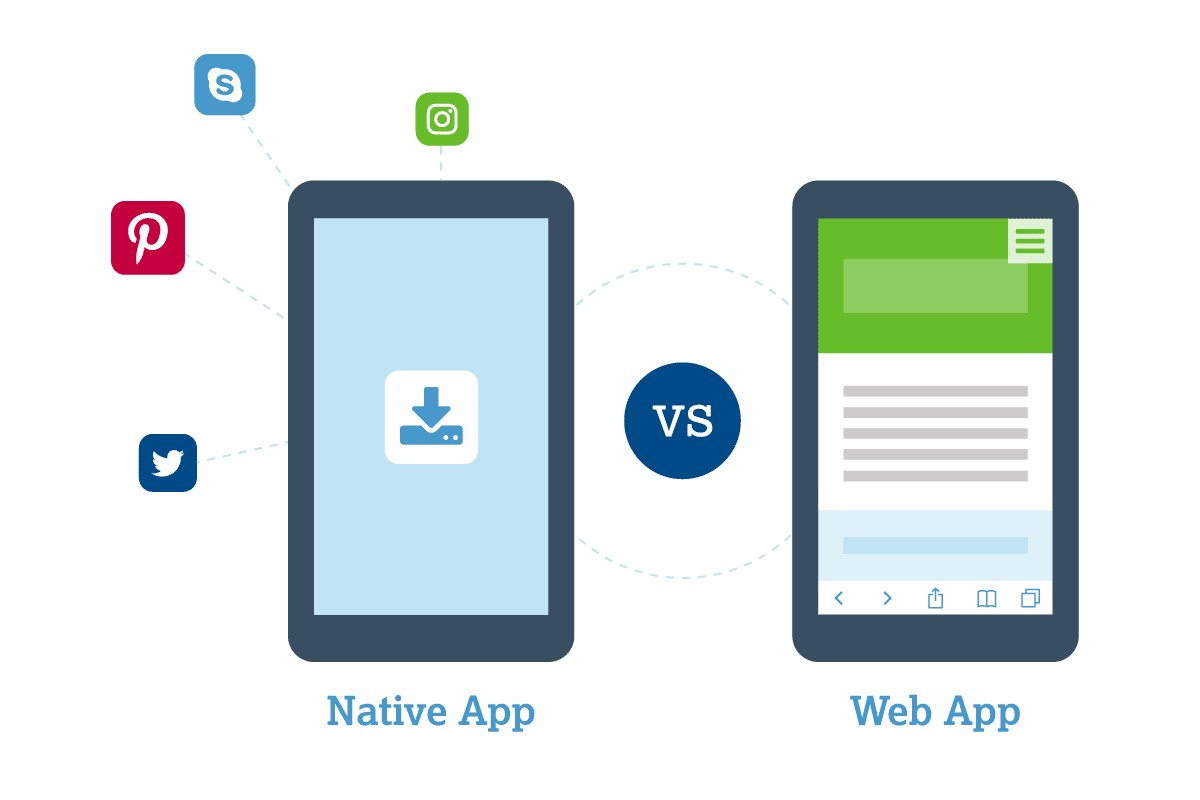Apps & Oranges: Understanding Apps & Choosing the Right Type for Your Business
posted on

Short for application, an app is a program designed for use on a mobile device. Many of us use apps every day, and the growing popularity of all different types of apps can make businesses who don't have one feel like they should be jumping on the app bandwagon. But not every business needs an app, and there's a lot you’ll need to think about and understand before you decide whether building an app is the right decision for your business. If you do decide to create an app, the next step will be to choose which type of app offers the best combination of functionality and cost. Here's what you need to know to choose the best app for your business.
Native Apps
A native app is designed to run on a particular mobile operating system, and is downloaded to the device itself from an app store. Native apps are built using the programming language specified by the operating system, so you must build a separate app for each device type.
Native App Pros:
- A native app is 100% integrated and compatible with the specified device’s features and functions.
- A native app generally works faster and more efficiently.
- Native apps are distributed through the app store, which handles distribution, and revenue and commissions from the app.
- Developers have access to a software development kit (SDK) and specialized tools designed for the targeted device’s operating system, which makes development somewhat easier.
- Native apps can store data securely on the device.
- Once downloaded, the app icon is displayed on the device’s home screen.
Native App Cons:
- Native apps are more expensive to develop.
- Developers must build a separate native app for each device type.
- Users of native apps must download updates as needed, so users may be using different versions of the app, which makes maintenance and support more difficult.
- Native apps must obtain the approval of the app store, which can reject an app or suggest modifications.
- Once the app is available in the app store, the company that developed it has no control over how it is displayed or promoted.
Web Apps
Web apps are built to deliver an app-like user experience without the need to develop a fully native application. A web app is built using the same programming language as a website, and is accessible to anyone who has web access, no matter what mobile device they are using.
Web App Pros:
- A web app has the same user interface across multiple devices for a uniform customer experience.
- A single version of a web app can be used across all mobile platforms.
- Web apps use the same code, so they are easier to maintain and support.
- Users always have access to the most up-to-date version of the app, with no need to install updates.
- There are no restrictions on how you make money from a web app—you can run ads, charge for subscriptions, collect membership fees, etc.
- Web apps require no approval from the app store, and there are no restrictions on when or how they are released or promoted.
- Web apps do not take up any storage on mobile devices that use them.
Web App Cons:
- Web apps have access to some, but not all of the device’s native features.
- If your app is monetized, you must set up your own payment system.
- Web apps are used on multiple mobile platforms, which increases the chance of incompatibilities and maintenance.
- Users may have difficulty finding a web app, since they are not available in the app store and users may not know they need to visit the website to use it.
Hybrid Apps
A hybrid app is a combination of a native app and a web app. Like a web app, a hybrid app is built with web-based code components like HTML, CSS, and JavaScript. But unlike a web app, a hybrid app runs in a native “container” that enables the app to access device-specific hardware and features like the camera, contacts, mapping, etc. So whereas a native app is built from the ground up for a specific mobile device, a hybrid app is built on a foundation of web code with a layer of translation per device. Like native apps, hybrid apps are distributed through an app store.
Hybrid App Pros:
- Hybrid apps are faster to develop because they use a single web-based code base for both iOS and Android, so you only have to build one version of the app.
- Hybrid apps offer a consistent user interface across all devices.
Hybrid App Cons:
- Hybrid app performance is often inferior to a native app.
Progressive Web Apps
A relatively new term coined by Google, a progressive web app (PWA) is a web app with additional functionality, including the ability to send push notifications, work offline, and add an icon to the home screen. Progressive web apps are accessed through the website, not downloaded to a phone.
Progressive App Pros:
- Progressive web apps are faster and cheaper to develop that native apps.
- Progressive web apps offer native-app-like functions including push notifications, a home screen icon, and an offline mode.
- Progressive web apps use caching to load quickly, even when network conditions are not optimum.
Progressive App Cons:
- Performance can be compromised on older devices and browsers.
- Progressive web apps must be served over a secure HTTPS connection.
- PWAs are a Google-led initiative, so only Android supports PWA functionality. PWAs will work on devices running iOS, but some features may not be available.